Are you starting to wonder when your daughter will get her first period? Maybe she’s beginning to need a bra, and you’ve noticed her body shape changing.
This is the parenting stuff you don’t think about when your baby is lying swaddled in your arms. “How will I explain a period to you?” said no mom ever to her newborn baby!
But like it or not, your baby girl is growing up. And she’s lucky to have you by her side as she matures into a young woman! With some preparation and your help, puberty doesn’t have to be an awkward time for your daughter—or a stressful time for you.
Give your daughter your knowledge and support as she prepares for her first period
You want your daughter to feel confident and secure as she goes through these years of change. The first step is to educate yourself on what to expect.
Knowing just a few basic facts about menarche (a girl’s first period) can help you both feel much more prepared as puberty begins.
Facts about menarche
- The average age for girls to begin their menstrual cycles is between 10-14 years old, though beginning one’s period slightly younger or slightly older can be perfectly normal.
- Your daughter’s period won’t just start right out-of-the-blue. She will notice several other body changes avant menarche:
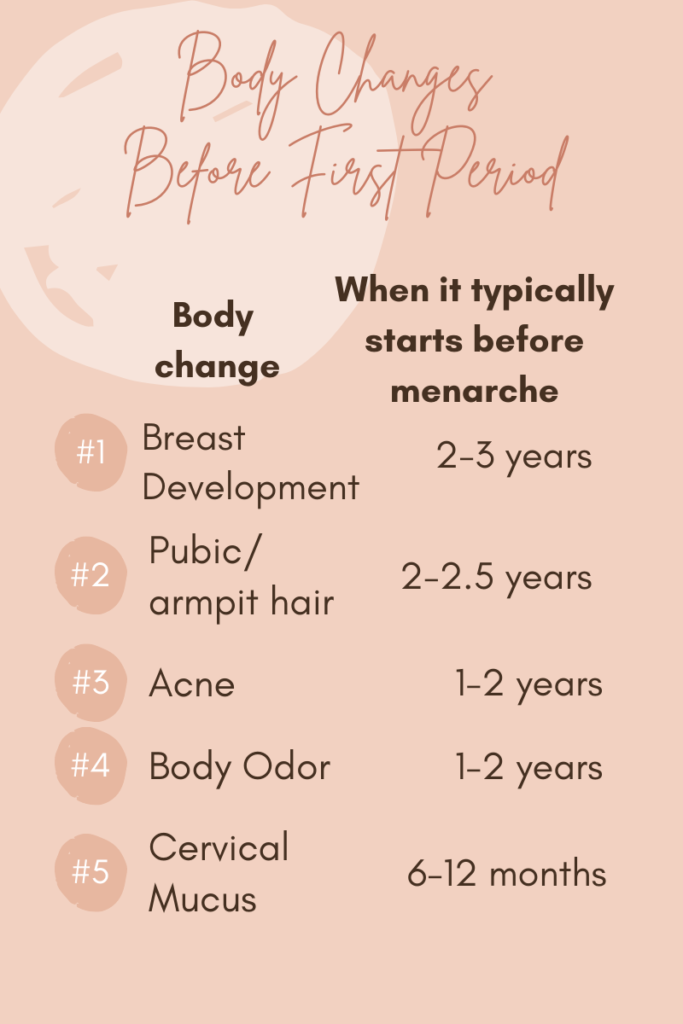
Facts about the menstrual cycle
The following are a few key concepts about the menstrual cycle that will help your daughter navigate puberty and the approach of her first period:
- A period is only one step in a cycle of events going on in her body.
- A brief overview of her menstrual cycle is a good idea, and it doesn’t have to be very complicated or in-depth. Let her know that her cycle is basically a series of hormones triggering each other. First, these hormones cause the lining of her uterus to thicken. As this is happening, her body is getting ready to release an egg, or ovulate. As she approaches ovulation (towards the middle of her cycle), she may begin to notice glaire cervicale at her vulva when she wipes during bathroom visits. When a pregnancy doesn’t happen (i.e., when the released egg isn’t fertilized and doesn’t implant in the uterus), the lining of her uterus sheds, and this is her period. One of the most important things to communicate here is that ovulation is the main event of her cycle, and the cause of her period. (Please be aware, though, that she may not ovulate for several cycles as her hormones need time to get to healthy levels, which is why girls often have irregular bleeding for 1-2 years after menarche.)
- The hormones necessary for ovulation, mainly estrogen and progesterone, are also required for cerveau, immunological, cœuret os development, and the maturing of her breasts and body shape.
- These same hormones also affect her mood, sleep patterns, and energy levels as they change throughout her cycle.
Most importantly, assure your daughter that:
- All these changes are good and healthy
- Her cycle is a beautiful and amazing part of being a woman
- You are there to answer any questions, and support her however you can throughout this process
Give your daughter the tools to feel confident about her first period
Giving your daughter these facts about her period and how her body is changing is one thing, but helping her feel confident and prepared for them can be quite another. It’s normal for a girl to be nervous as she anticipates her first period, and to feel too embarrassed to talk about her concerns.
Allow me to offer a few practical ideas for giving your daughter the physical and emotional guidance she needs, while stressing that you know her best of all, and are therefore the best-equipped person to help her deal with this important transition. The following suggestions are all great ways to start the conversation with your daughter, and get a feeling for where she’s most confused or nervous:
- Talk about when you had your 1st period. This will give her an idea of what to expect and when to expect it.
- Ask about what she’s heard from her friends. Her friends may be talking about their periods and influencing your daughter’s opinions of her body. This gives you the chance to have a healthy discussion about periods.
- Begin to explain cycle charting. If you have experience with charting your cycle, share how she can learn to observe her body and chart its signs. Explain that this knowledge will help her understand when her hormones change during her cycle, how that affects her mood, and how she can predict her periods. If you’re not familiar with cycle charting, it’s still important for your daughter to understand that she’ll begin to see cervical mucus caused by rising estrogen, and that it is completely normal and healthy. (This would also be a good time to let her know what kinds of vaginal discharge signal a problem in need of attention, e.g., greenish or other “off” colors, with or without a fishy or other kind of “off” smell.)
- Make a period kit. In a bag, pack everything she may need for when her period starts, so she can throw it into a backpack or purse. It can be a casual and educational project to do together. Suggestions to include in your period kit:
- Tampons, pads or period panties
- Clean pair of panties
- Extra pair of leggings
- Plastic bag to put soiled clothes in
- Wet wipes
- Reusable heating pad
- Chocolate
- A cute zippered bag to pack it all in (no one has to know what’s in it!)
If you’d like some additional help preparing your daughter for her first period…
I hope you’ll use the guidelines above to assess how close your daughter is to getting her first period, and to help her feel prepared and confident for the day it arrives.
Please don’t let your own negative experiences with your menstrual cycle or your lack of knowledge on the whole subject stop you from creating a positive experience for your daughter. If you’re like most women today, you probably weren’t very well informed as a teen about the importance of your cycle and caring for your fertility. Fortunately, there are many more resources available today for helping our daughters, and we have the chance to change the narrative for our children as they grow into adults.
For more information on these programs, see these Natural Womanhood articles, and the rest of NW’s “Teaching Teens” section:
Pourquoi j'apprends à mes filles à tracer leur cycle menstruel
Guider les jeunes filles vers l'appréciation de la fertilité

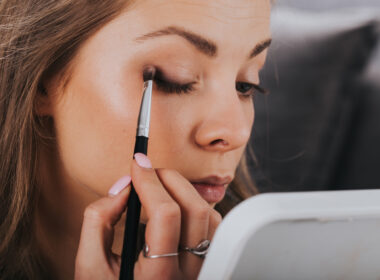

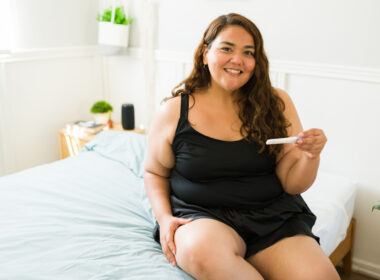





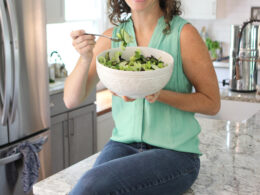

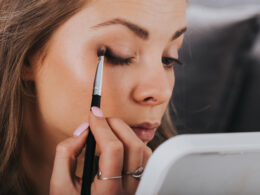
Thank you for writing this article and giving mothers the tools they need to help their daughter during what could be a stressful time. My own coming of age was awful – although Bai had t so older sisters, when my time came all my mother offered me was a pad with the advice, “Wear the blue line down.” That’s it. My older sisters were offered a book by mom called “Growing Up And Liking It.” When I came upon that book in a closet I ripped it in half and flung it across my sisters’ room. Yeah, quite angry my mom didn’t choose to offer me any solace or understanding or information for me. So…thank you for offering advice to moms to help their daughters make it through a confusing time in their lives as they catapult into adulthood. (When my own daughter started menstruating I welcomed this change with joy and excitement with her).